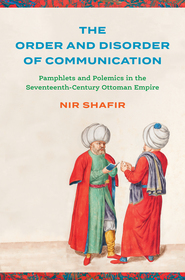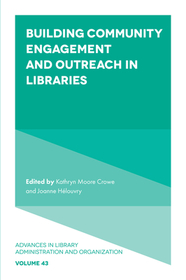
The Order and Disorder of Communication
Pamphlets and Polemics in the Seventeenth-Century Ottoman Empire
Sorozatcím: Stanford Ottoman World Series: Critical Studies in Empire, Nature, and Knowledge;
-
10% KEDVEZMÉNY?
- A kedvezmény csak az 'Értesítés a kedvenc témákról' hírlevelünk címzettjeinek rendeléseire érvényes.
- Kiadói listaár GBP 60.00
-
28 665 Ft (27 300 Ft + 5% áfa)
Az ár azért becsült, mert a rendelés pillanatában nem lehet pontosan tudni, hogy a beérkezéskor milyen lesz a forint árfolyama az adott termék eredeti devizájához képest. Ha a forint romlana, kissé többet, ha javulna, kissé kevesebbet kell majd fizetnie.
- Kedvezmény(ek) 10% (cc. 2 867 Ft off)
- Kedvezményes ár 25 799 Ft (24 570 Ft + 5% áfa)
Iratkozzon fel most és részesüljön kedvezőbb árainkból!
Feliratkozom
28 665 Ft

Beszerezhetőség
Becsült beszerzési idő: A Prosperónál jelenleg nincsen raktáron, de a kiadónál igen. Beszerzés kb. 3-5 hét..
A Prosperónál jelenleg nincsen raktáron.
Why don't you give exact delivery time?
A beszerzés időigényét az eddigi tapasztalatokra alapozva adjuk meg. Azért becsült, mert a terméket külföldről hozzuk be, így a kiadó kiszolgálásának pillanatnyi gyorsaságától is függ. A megadottnál gyorsabb és lassabb szállítás is elképzelhető, de mindent megteszünk, hogy Ön a lehető leghamarabb jusson hozzá a termékhez.
A termék adatai:
- Kiadás sorszáma 1
- Kiadó Stanford University Press
- Megjelenés dátuma 2024. október 8.
- ISBN 9781503638952
- Kötéstípus Keménykötés
- Terjedelem436 oldal
- Méret 229x152 mm
- Súly 683 g
- Nyelv angol
- Illusztrációk 1 figure, 6 halftones, 3 maps 712
Kategóriák
Hosszú leírás:
The seventeenth-century Ottoman Empire was rife with polemical debate, around worshipping at saints' graves, medical procedures, smoking tobacco, and other everyday practices. Fueling these debates was a new form of writing—the pamphlet, a cheap, short, and mobile text that provided readers with simplified legal arguments. These pamphlets were more than simply a novel way to disseminate texts, they made a consequential shift in the way Ottoman subjects communicated. This book offers the first comprehensive look at a new communication order that flourished in seventeenth-century manuscript culture.
Through the example of the pamphlet, Nir Shafir investigates the political and cultural institutions used to navigate, regulate, and encourage the circulation of information in a society in which all books were copied by hand. He sketches an ecology of books, examining how books were produced, the movement of texts regulated, education administered, reading conducted, and publics cultivated. Pamphlets invited both the well and poorly educated to participate in public debates, thus expanding the Ottoman body politic. They also spurred an epidemic of fake authors and popular forms of reading. Thus, pamphlets became both the forum and the fuel for the polarization of Ottoman society. Based on years of research in Islamic manuscript libraries worldwide, this book illuminates a vibrant and evolving premodern manuscript culture.
TöbbTartalomjegyzék:
List of Figures
Note on Transliteration and Translation
Acknowledgments
Map
Introduction
Part I: Order
1. Production
2. Circulation
3. Education
4. Reading, Elite
Part II: Disorder
5. Polemics
6. Pamphlets
7. Polarization
8. Reading, Popular
9. Publics
10. Pamphleteer
Conclusion
Notes
Bibliography
Index






